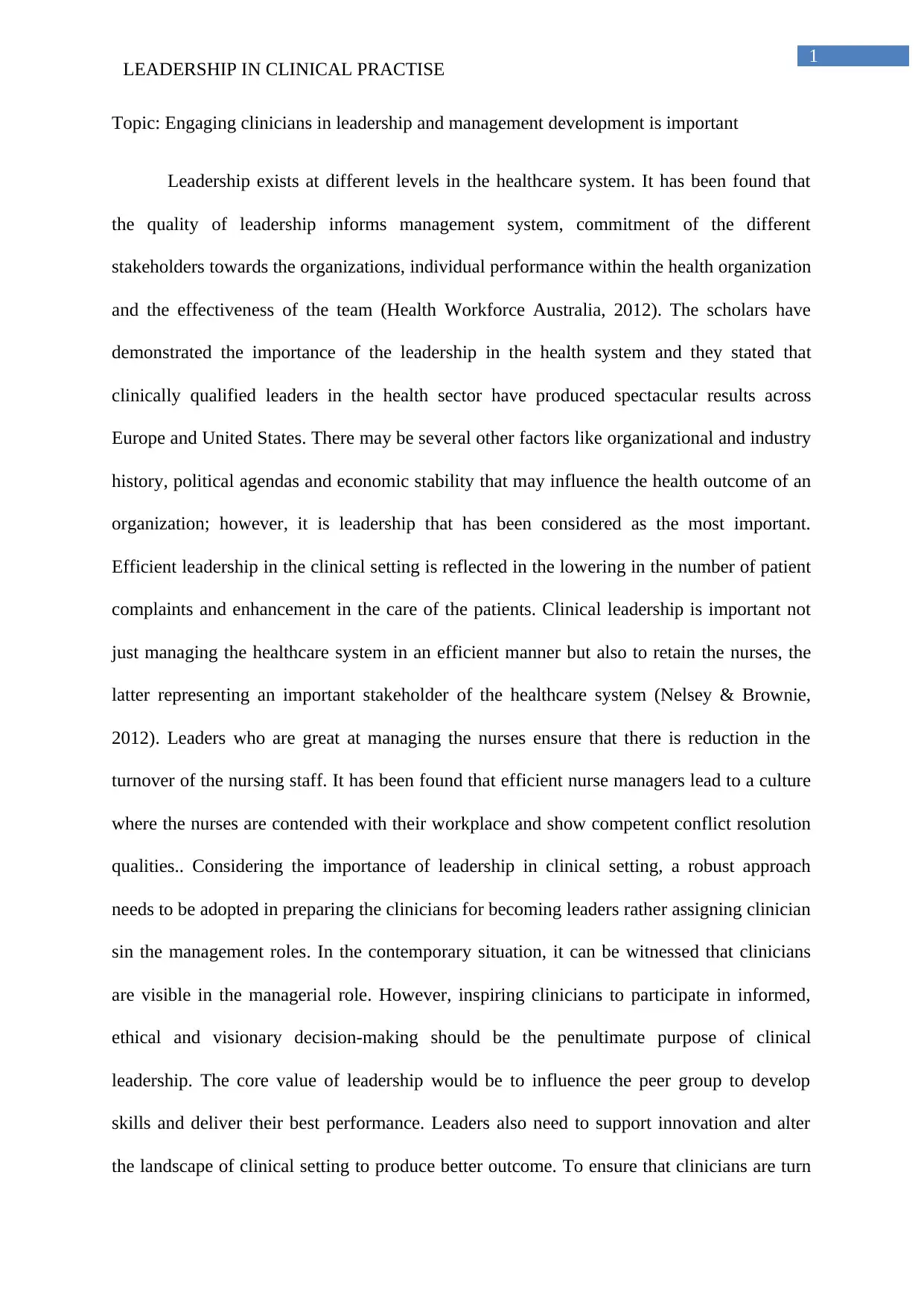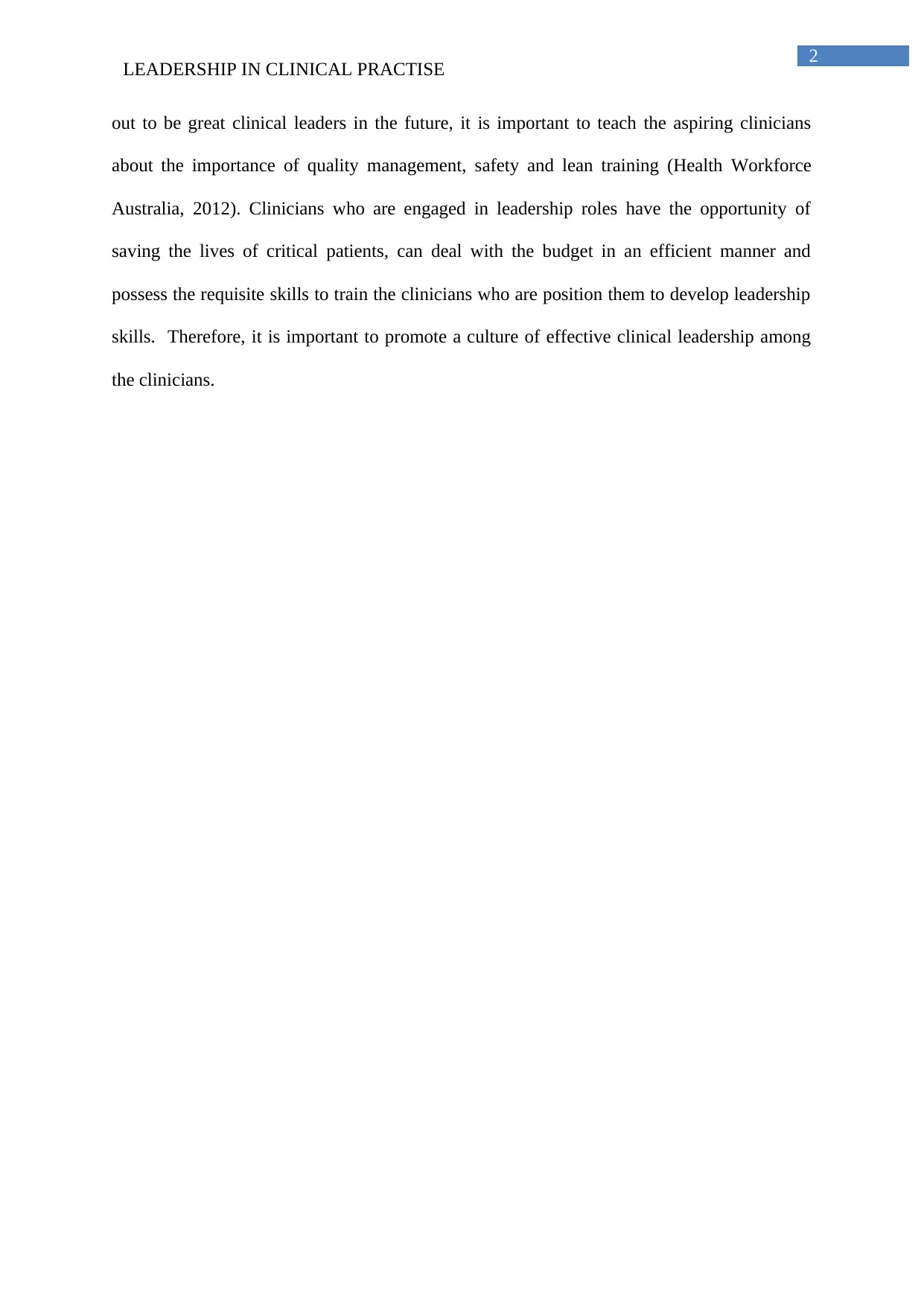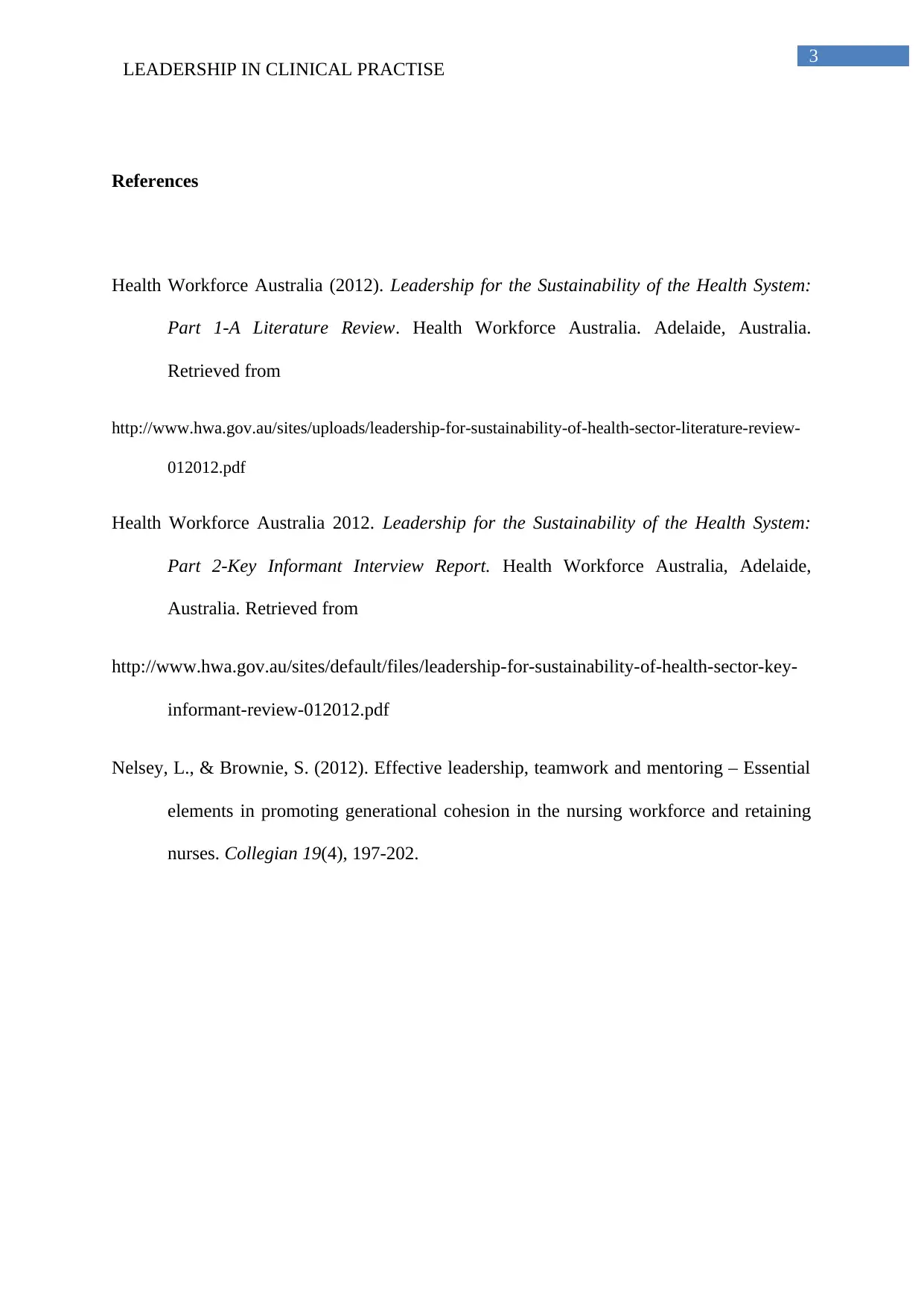An Analysis of Leadership in Clinical Practice and Management
VerifiedAdded on 2021/06/14
|4
|601
|41
Report
AI Summary
This report delves into the critical role of leadership in clinical practice. It highlights the significance of effective leadership in healthcare, emphasizing its influence on patient outcomes, the management of healthcare systems, and the retention of nursing staff. The report underscores the importance of training clinicians in leadership roles, advocating for the development of skills in quality management, safety, and lean training. It also explores the benefits of clinical leadership, such as efficient budget management and the ability to mentor future leaders. The report references several sources to support the arguments and provides a comprehensive analysis of the subject matter. Ultimately, the report advocates for the promotion of a culture of effective clinical leadership to enhance the overall performance of healthcare organizations.
1 out of 4










![[object Object]](/_next/static/media/star-bottom.7253800d.svg)